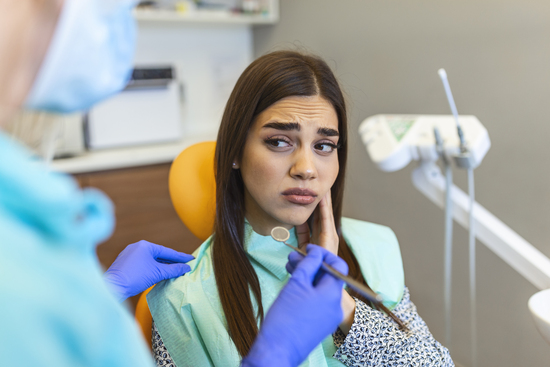What is a root canal?

When is a root canal needed?
A root canal replaces the pulp in your tooth after it has been injured or if there is an infection.
The part of the tooth you can see above your gums, the crown, can be kept intact even if the interior has been injured or infected. However, removing pulp makes it challenging to save the teeth’s structure.
Several sources can harm the pulp, and they include:
- deep decay due to an untreated cavity
- multiple dental procedures on the same tooth
- a chip or crack in the tooth
- an injury to the tooth (you might injure a tooth if you get hit in the mouth; the pulp can still be damaged even if the injury doesn’t crack the tooth)
Pains and swelling in the area of your teeth is typically a sign of pulpal damage. Your dentist will examine your tooth and take X-rays to determine if there is indeed any damage. Depending on the diagnosis, they may refer you to an endodontist for more treatment recommendations.
How is a root canal performed?
When you arrive for your appointment, our specialist will escort you to a treatment room and help get you situated in a chair.
Anesthetic
Our dentist preps your gums with numbing medicine; you can feel the injection area. The procedure can cause a slight prickling or burning sensation but will pass quickly.
You won’t be able to feel any pain during the surgery because we will use anesthesia.
Removing the pulp
When your tooth is numb, our specialist will make a small opening in the top. Once the infected or severely damaged pulp (the soft, sensitive zone towards the center) is exposed, we will carefully remove it using special tools called files. Next, we’ll carefully clean up any remaining infection and seal the opening to heal your tooth.
Antibiotics
Once the pulp is removed, our dentist may use an antibiotic to prevent and treat the infection. Once the canals are cleaned, they’ll be disinfected and filled with a sealer paste.
Temporary filling
The dentist will finish the treatment by filling the pores in the tooth’s top with a gel-like material that will seal them off. This is important as it helps protect it and prevents saliva from entering.
Follow up after your root canal.
Your tooth and gums may be sore after the anesthesia wears off. Your gums may also swell up. Most dentists recommend treating these symptoms with over-the-counter pain medications such as acetaminophen (Tylenol) or ibuprofen (Advil).
Resuming your normal daily activities the day after the procedure is usually possible. However, avoid chewing with that tooth until it’s permanently fixed or a crown is placed on top.
Our root canal specialist will visit you 2-3 days after the procedure is completed. They’ll take X-rays to ensure no sign of infection and replace your temporary filling with a permanent one.
Our dentist may place a permanent crown on the tooth if you prefer. A height is an artificial tooth made of porcelain or gold. The benefit of getting a crown is that it restores teeth to a natural-looking color and shape.
That being said, you may need one or two weeks to get used later. However, this is a common occurrence, not a sign of anything significant.
What happens after a root canal?
A root canal procedure is typically considered a «restorative» procedure. Your teeth should thrive like they never have before afterward, but how long the results last depends on your routine dental hygiene practices.
Book an Appointment with a Dental Specialist
Book an Appointment with a Dental Care Specialist
Book an Appointment with an Aesthetics Care Specialist
Book an Appointment with a Nutritionist Care Specialist
Book an Appointment with a Cosmetology Care Specialist
Urban Center Building.
Blvd. General Sánchez Taboada 9589 Suite102 1St floor, Zona urbana rio, Tijuana 22010, B.C. México.
